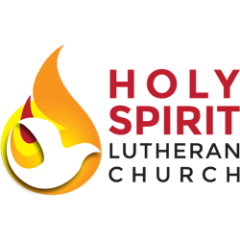Latest News
Lemonade Socials
Summer is here and we will again hold Lemonade Socials following the worship service in the narthex. This is an opportunity to relax and visit with your church family.
We invite you to host one of the socials. You would provide lemonade and some light snacks. Cups, plates, napkins, etc. will be provided and the tables will be set up. You will find sign-up sheets on the Ministry Table outside the Pastor’s office door. We hope you will choose a date to serve as host.
The first social will be June 22nd and continue thru August 24th.
If you have any questions, please see Linda Slade or Mary Ann Russell.
From the Pastor May 2025
Introducing the Community Chest:
Give What You Can, Take What You Need
We’re thrilled to introduce a new way to care for one another: the Community Chest. Think of it as a shared table of generosity, where every item carries a whisper of kindness.
Here’s how it works: bring what you can like groceries, cleaning supplies, or gently used home goods—and place them on the Community Chest table. If you’re in need, feel free to shop from the table at no cost. If you’re in a position to give a little extra, you’re welcome to leave a donation for anything you take. All proceeds will go directly to our local food bank.
What should you bring?
· Perishable items you won’t use before they spoil
· Buy-one-get-one-free deals you don’t need both of
· That fancy candle you lit once and realized wasn’t your scent
· Extra cleaning supplies, unopened toiletries, or kitchen gadgets with life left in them
This isn’t just a donation table, it’s a small act of mutual care. It’s a way to reduce waste, support one another, and pass a little love along to our neighbors in need.
Why Now?
We know things are feeling a bit chaotic right now. There’s uncertainty in the economy, and growing concerns about potential shortages of everyday items. During times like these, being part of a caring community is more important than ever. The Community Chest is one way we can respond, not with fear, but with generosity and trust.
We may not know what the future holds, but we do know this: we are not alone. We have each other. And that makes all the difference.
Let’s stock the chest with hope, with kindness, and maybe a few extra rolls of toilet paper, just in case.
Holy Week Schedule
Please join us for the services of Holy Week
Palm Sunday– April 13, 9:30 a.m.
Maundy Thursday– April 17, 7:00 p.m.
Good Friday– April 18, 7:00 p.m.
Easter Sunday– April 20, 9:30 a.m.
Community Yard Sale
May 3rd 8:00 a.m.
May 3rd is the date for this year’s Community Yard Sale. This is the second of our two fundraisers to support our youth ministries. The proceeds from the yard sale will help to ensure that everyone who wants to go to the church camp will be able to attend.
There are several ways in which to support this work. First, you can reserve a space on that day for $15.00 and set up your own yard sale offerings. Second, if you don’t have enough items for your own space, you can donate what you have for the church’s yard sale table. You can drop off your donations in the Narthex from 9:00AM – Noon on Saturdays April 12th , April 19th and April 26th. Finally, you can sign up on Friday night, May 2nd or Saturday, May 3rd to help run the sale. There are plenty of positions to fill and each job is for only a two hour segment. If you have any questions contact Tim Smith 717-333-1812 or Candy Steiner 717-823-7945.


